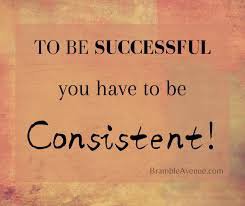Setting healthy boundaries is crucial for maintaining a balanced and fulfilling life. Boundaries help protect our mental, emotional, and physical well-being by defining what is acceptable and what is not in our interactions with others. This guide explores the importance of boundaries, how to establish them, and answers common questions about maintaining them.
Understanding the Importance of Boundaries:
Boundaries are essential for several reasons. They help us manage stress, build healthier relationships, and ensure that our needs and feelings are respected. Without boundaries, we may feel overwhelmed, resentful, or taken advantage of. On the other hand, healthy boundaries empower us to take control of our lives and create a safe space for ourselves.
Steps to Set Healthy Boundaries:

1. Identify Your Limits
The first step in setting boundaries is understanding your limits. Reflect on your physical, emotional, and mental needs. Identify situations or behaviors that make you uncomfortable or stressed. This self-awareness is crucial for determining where to draw the line.
2. Communicate Clearly and Assertively

Once you know your limits, communicate them clearly and assertively. Use “I” statements to express your needs and feelings without blaming others. For example, say, “I need some alone time after work to relax,” instead of, “You always bother me when I get home.”
3. Be Consistent

Consistency is key to maintaining boundaries. If you waver or allow exceptions too often, others may not take your boundaries seriously. Reinforce your limits regularly and be firm in your decisions.
4. Learn to Say No

Saying no can be challenging, but it’s essential for protecting your boundaries. Practice saying no in a polite but firm manner. Remember, you have the right to prioritize your well-being over others’ demands.
5. Seek Support

If you find it difficult to set or maintain boundaries, seek support from friends, family, or a therapist. They can provide guidance, encouragement, and strategies to help you stay firm in your decisions.
6. Respect Others’ Boundaries

Respecting others’ boundaries is essential for fostering healthy relationships and mutual respect. Boundaries, whether physical, emotional, or mental, define individuals’ comfort levels and limits. Active listening and clear communication play pivotal roles in understanding and acknowledging these boundaries. It’s crucial to validate others’ feelings and non-verbal cues, demonstrating respect for their autonomy and choices. Asking directly about boundaries and accepting “no” graciously without pressure or assumptions further enhances respect. Apologizing sincerely if boundaries are inadvertently crossed and modeling respectful behavior oneself encourages a culture of understanding and mutual consideration in all interactions.
Common FAQs About Setting Boundaries:
1. What if someone gets upset when I set a boundary?
It’s common for people to react negatively when you set a new boundary, especially if they’re used to having more access to your time or emotions. Stay calm and assertive. Explain your reasons if necessary, but remember, you are not responsible for their feelings. Over time, most people will adjust and respect your limits.
2. How can I set boundaries at work without jeopardizing my job?
Setting boundaries at work is crucial for preventing burnout. Communicate your limits professionally and respectfully. For instance, set clear working hours and stick to them. If you’re asked to take on more than you can handle, express your concerns and suggest alternative solutions. Your well-being is important, and most employers appreciate employees who manage their time effectively.
3. Can setting boundaries improve my relationships?
Yes, healthy boundaries often lead to healthier relationships. They prevent resentment and misunderstandings by ensuring both parties know and respect each other’s limits. Boundaries create a framework for mutual respect and communication, which are essential for any healthy relationship.
4. What if I feel guilty about setting boundaries?
Feeling guilty is natural, especially if you’re not used to setting boundaries. Remind yourself that taking care of your needs is not selfish but necessary for your well-being. Over time, as you see the positive impact of boundaries on your life, the guilt will diminish.
5. How do I enforce boundaries with family members?
Enforcing boundaries with family can be challenging due to emotional ties and expectations. Be clear and consistent about your limits. Communicate openly about why these boundaries are important for your well-being. It’s okay to seek support from a therapist if family dynamics are particularly difficult to navigate.
Conclusion
Setting healthy boundaries is an ongoing process that requires self-awareness, communication, and consistency. By identifying your limits, communicating them assertively, and respecting others’ boundaries, you can create a balanced and fulfilling life. Remember, boundaries are a form of self-care that allows you to protect your well-being and maintain healthy relationships. Start small, be patient with yourself, and gradually build the boundaries that best support your life and happiness.
